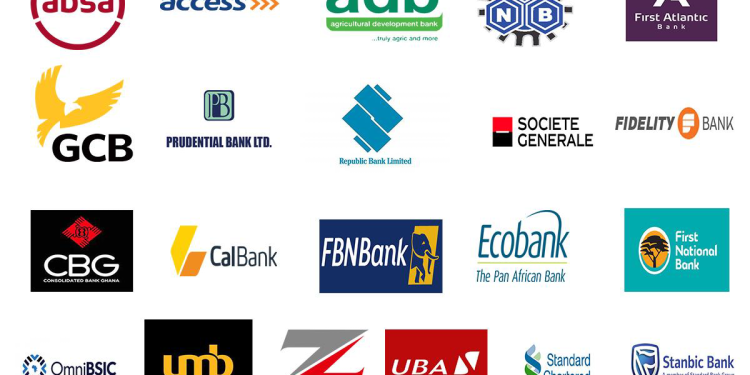2025 Survey Ranks CalBank and Zenith as Leaders in Ghana’s Customer Satisfaction Index
In an increasingly competitive Ghanaian banking landscape, customer satisfaction has become the most significant differentiator. According to the newly released 2025 Customer Satisfaction and Brand Health Report by Global InfoAnalytics and Stratcomm Africa, CalBank PLC and Zenith Bank Ghana Limited have emerged as the undisputed leaders in customer service performance, each achieving an impressive overall satisfaction score of 81%, well above the industry average of 72%.
These figures, derived from a comprehensive survey of over 3,000 bank customers across all 16 regions of Ghana, offer more than a snapshot of service quality. They serve as a referendum on trust, responsiveness, and the everyday banking experiences of Ghanaians navigating a fragile post-recovery economy. With the financial sector still recovering from the reverberations of recent debt restructuring and high inflation, the battle for customer loyalty is now playing out in service halls, on mobile apps, and across digital platforms.
CalBank’s Quiet Transformation
CalBank’s performance is particularly striking. Historically seen as a mid-tier player, the bank now finds itself neck-and-neck with larger multinationals, outperforming its peers not just on overall satisfaction but across all five dimensions of the SERVPERF customer service model: tangibles, reliability, responsiveness, assurance, and empathy.
The report attributes CalBank’s edge to consistently high scores in the “Assurance” (81%) and “Empathy” (81%) categories, metrics that measure staff competence and personalised customer engagement. In a sector where transactional banking still dominates, CalBank’s focus on a customer-centric culture signals a strategic pivot: banking is no longer just about access to credit but about emotional connection, confidence in service, and seamless support.
Analysts suggest that CalBank’s investments in staff training, branch refurbishment, and digital integration are beginning to pay off. “What we’re seeing is the result of deliberate internal transformation,” said a financial services consultant familiar with the bank’s operations. “They’ve moved beyond lip service to embed service excellence in how they deliver value.”
Zenith Bank: Consistency and Digital Muscle
For Zenith Bank, the 81% overall satisfaction score reinforces its brand positioning as a reliable and digitally savvy institution. The Nigerian-headquartered bank leads in “Tangible” service delivery (84%), a category assessing the quality of physical infrastructure, equipment, and digital platforms. This aligns with the bank’s recent digital innovations, including enhancements to its mobile banking suite and user-friendly interface upgrades across its ATMs and online portals.
Zenith’s consistent high marks in “Reliability” (83%) and “Responsiveness” (78%) further underscore its strength in operational excellence and customer interaction. In a market where technical downtimes and transactional delays can quickly erode trust, Zenith has clearly carved out a reputation for dependability.
Yet, industry observers caution that high digital capability alone may not be enough. “The next frontier is emotional loyalty,” says a senior executive at a rival bank. “It’s not just about processing transactions faster but about creating memorable experiences. On that front, CalBank seems to have taken the lead.”
The Chase from Behind: Fidelity’s Solid Showing
Fidelity Bank Ghana Limited, with an overall satisfaction score of 73%, is positioned just behind the two frontrunners. Its strength lies in balanced performance, scoring above average in key dimensions like “Tangible” (74%) and “Assurance” (74%). As a relatively younger indigenous bank, Fidelity’s ability to maintain parity with older institutions is indicative of its strategic intent to compete through customer-centric innovation.
However, the marginal gap between Fidelity and the sector average raises questions about its ability to break into the top tier. Can it scale its service model without losing the personal touch that differentiates it?
A Sector on Notice
With the average customer satisfaction score for the industry at 72%, the report suggests a generally positive outlook. But it also reveals a wide gap between top and bottom performers, with some banks struggling to break past the 60% satisfaction threshold.
This divergence has implications for regulatory and strategic action. In recent years, the Bank of Ghana has emphasised customer protection and financial inclusion. Yet, the real test of inclusivity lies in the quality of engagement, not merely access.
“Financial inclusion without quality service is tokenism,” argues a customer experience researcher. “Customers are sending a clear message: they want to be heard, respected, and served with excellence.”
The Stakes Ahead
As Ghana’s banking sector inches toward greater digitalisation and competitiveness under AfCFTA, customer service will become even more vital. Those who lead today must avoid complacency, while lagging institutions must respond to an increasingly empowered customer base.
The findings from this report serve not only as a commendation for top performers like CalBank and Zenith but also as a call to action for the entire industry. In a post-COVID, post-debt-restructured era, the institutions that will thrive are those that recognise service excellence not as a department but as a strategy.
Follow NorvanReports for full data analysis of this new report.









